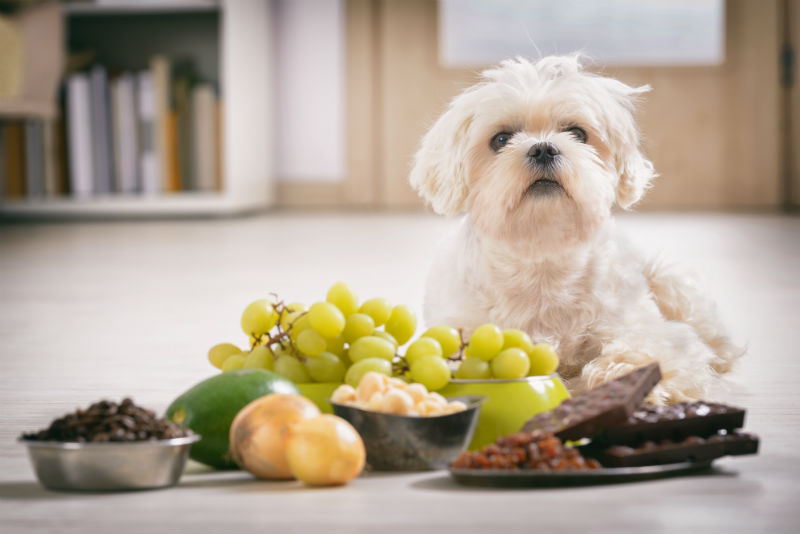Our pets love to investigate every inch of their surroundings, especially with their noses and mouths. Unfortunately, this kind of exploration can often lead to dangerous situations and occasionally some unwanted trips to the emergency veterinary clinic. Our homes are filled with objects and substances that can be detrimental to the health of our pets. Knowing the potential dangers of these everyday household items is the first step to creating a safe environment for our furry family members.
In the Kitchen
While some people may think of grapes and raisins as a healthy snack, they have the potential to cause sudden kidney failure in many dogs, even in tiny doses.
Chocolate contains theobromine, caffeine and often a high-fat content that can lead to a variety of health issues ranging from vomiting and diarrhea to inflammation of the pancreas and fatal heart conditions.
Garlic, onions and other members of the Allium species of plant can be especially toxic to cats. This family of plants can cause anemia (red blood cell deficiency) which can, in turn, lead to the failure of many vital organs in the body.
Animal Bones
Animal bones can be choking hazards and become even more dangerous cooked. The cooking process makes bones softer and more susceptible to splintering. Even large raw bones can be broken into small pieces, and are notorious for causing painful tooth fractures.
Other dangers in the kitchen include compost, contents of garbage cans, undercooked meat, and artificial sweeteners such as xylitol.
In the Bathroom
Some medications deemed as safe in humans can prove to be fatal in our pets. Common drugs that cause toxicity in our pets include Tylenol, Advil, antidepressants, and sleep aids. Cats are especially susceptible to Tylenol (acetaminophen) toxicity, and a very small amount could quickly lead to organ failure and death.
In the Yard
Some examples of common plants that are toxic to pets when ingested are aloe vera, jade plants, lilies, poinsettia, and English ivy plants.
Antifreeze
Antifreeze contains Ethylene glycol, which can cause rapid kidney failure in both dogs and cats. It has a particularly pleasant smell that attracts animals. Antifreeze that is present in puddles can be licked up by our pets, and also picked up on paws and licked off during grooming.
Pest Control
Many rodenticides contain anticoagulants (substances that do not allow blood to clot) which can lead to internal bleeding and death in our pets.
What’s Next?
Always consult a veterinarian if your animal consumes one of these substances. In many cases, it may be considered an emergency, and your vet will know the correct steps to take to minimize harm. Although making our animals vomit may be our first instinct when they ingest something dangerous, do not induce vomiting unless advised to do so by your vet. In some cases, the substance that has been swallowed may cause further damage when vomiting occurs.
The most obvious step to prevent accidental exposure is to keep dangerous items out of reach, but this is often easier said than done. This is especially true in my house, as my cat will reach any height and knock things onto the floor where my dog will then eat them. I have found child safety locks on cupboards to be handy and pet gates are used to confine areas of the house that are more difficult to control. Keeping safe pet plants in your house and garden will also help ensure the safety of your animals (and the neighbour’s pets too).
Check out the links in the blog to learn more about pet hazards!
Written by: Amy Lee, Veterinary Technician




